Less than a year after not being elected by the Baseball Writers Association of America in their final year of eligibility, Barry Bonds, Roger Clemens and Curt Schilling have another shot at the Hall of Fame. They are three of the eight players on the Contemporary Baseball Era Committee ballot, which also features Albert Belle, Don Mattingly, Fred McGriff, Dale Murphy and Rafael Palmeiro.
The committee’s 16 members can vote for no more than three players. To be elected, players must appear on at least 75% of the ballots cast. Before the results are announced Sunday at 8 p.m. ET, we asked our baseball writers who they would vote for if they were one of the committee members. Here’s what they had to say:
Tom Verducci
Fred McGriff and Curt Schilling
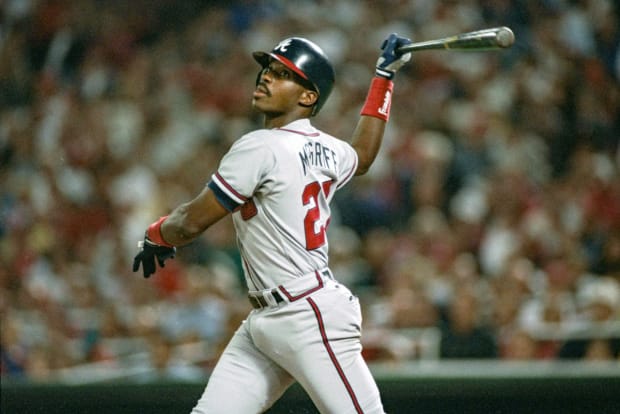
John Iacono/Sports Illustrated
This is an easy call. McGriff is the most likely player on the ballot to be elected. Why? He has the best Hall of Fame credentials with no taint. You can feel good voting for him, as I did for all 10 years he was on the ballot.
McGriff retired after the 2004 season with 493 home runs and 1,550 RBIs, the most 20-home run seasons of any first baseman in history (14), the third most games ever at first base, and a .303 average and .917 OPS in 50 postseason games.
McGriff is one of only 18 players ever to appear on a Hall of Fame ballot with an OPS as high as .886 while coming to bat more than 10,000 times. All 15 not connected to PEDs were quickly voted in by the writers with one exception: McGriff.
He is one of 33 players to hit 475 home runs. All 23 of them who have been on a ballot and not connected to PEDs were elected easily to the Hall with one exception: McGriff.
Schilling is one of the game’s greatest postseason pitchers and one of its best to ever combine power and control. Schilling (216–146, 127 ERA+) is Don Drysdale (209–166, 121 ERA+) with a better postseason record and better command.
Schilling was 11–2 with a 2.19 in 19 postseason games, including 4–0 with a 1.37 ERA in five starts when his team faced elimination; his team won every time it handed him the ball with its season on the line.
He owns the greatest strikeout-to-walk rate of any retired pitcher with at least 2,000 innings since the mound distance was set at 60 feet, six inches in 1889.
He is the only pitcher with three 300-strikeout seasons not in the Hall (the others are Amos Rusie, Tim Keefe, Sandy Koufax, Nolan Ryan and Randy Johnson).
Stephanie Apstein
Barry Bonds, Roger Clemens, Curt Schilling
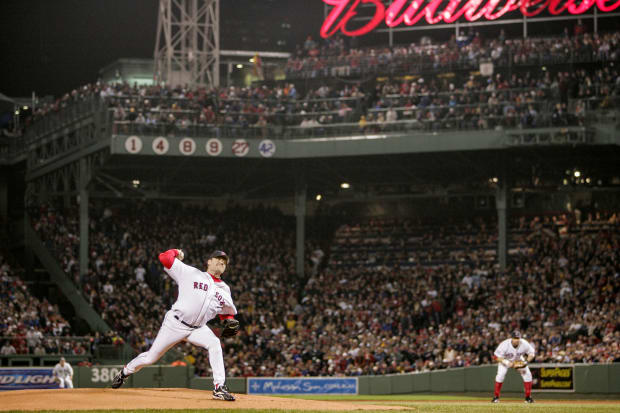
Chuck Solomon/Sports Illustrated
I don’t vote for end-of-season awards and I won’t vote for the Hall of Fame when I become eligible in a couple of years, because I think writers should report the news, not make it. Ballots like this one are exactly the ones I’m glad I can avoid: Barry Bonds, Roger Clemens and Curt Schilling seem to me to be obvious Hall of Famers based on their numbers, but voters have to grapple with serious off-field allegations. (I also do not think it is our place to guess, in the absence of a suspension, which players used performance-enhancing drugs and which didn’t.)
Bonds’s ex-wife, Sun Bonds, testified during the couple's 1995 divorce trial that he had beaten her on numerous occasions. (Bonds's attorney denied the allegations at the time.) Clemens allegedly began dating a 15-year-old Mindy McCready when he was 28; she later took her own life. (Clemens denied when it was reported that the relationship was inappropriate.) And Schilling has spent most of his retirement swindling Rhode Island out of $75 million, getting fired from ESPN for posting offensive memes to social media and tweeting his support for insurrectionists. (Schilling has called Rhode Island’s then governor Lincoln Chafee a “dunce” and declined to apologize for the posts.) It’s not the Hall of Famously Nice Guys, and Bonds and Clemens were two of the best who ever did it, and Schilling would already be enshrined if he’d just logged off, so for the purposes of this exercise, I will vote for all three. But I’m glad that in real life, I don’t have to.
Emma Baccellieri
Barry Bonds, Roger Clemens and Fred McGriff
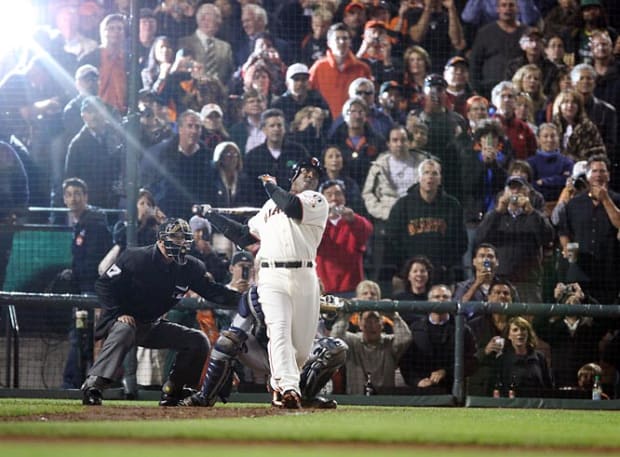
Brad Mangin/Sports Illustrated
I would vote for Barry Bonds, Roger Clemens and Fred McGriff. I've come down this way on players linked to steroids: I make a distinction between players who were suspended for documented positive tests after the league began its enforcement policy, and those who weren't. (It's worth noting that distinction separates another candidate on this ballot, Rafael Palmeiro, from Bonds and Clemens.) Among players who weren't suspended, there’s just so much we don’t (and can’t) know, as well as the fact that the whole exercise is complicated by the presence of former commissioner Bud Selig in the Hall. It’s hard for me to automatically discount the players shrouded in suspicion from the steroid era when the man who oversaw the whole period is already in Cooperstown. So I find Bonds and Clemens essential to recent baseball history; I’d give them my vote. As for McGriff, I think his numbers speak for themselves: 493 home runs and 2,490 hits (and countless appearances in Tom Emanski commercials!) are good enough for the Hall in my book.
Claire Kuwana
Fred McGriff
McGriff was as consistent as you can get, landing in the top five in the league for both OPS and home runs for six years straight (1988–94). Beginning with his rookie year in ’87, McGriff hit 20 or more home runs in 11 consecutive seasons, missed that plateau by one in ’98, and then rattled off four more 20-homer years in a row. He finished his career with 493 home runs, tied with Lou Gehrig for the 29th most all-time and 12th among first basemen. He did this despite playing in the steroid era and without any ties to PED use.
Will Laws
Barry Bonds, Roger Clemens, Curt Schilling
I’d vote for more than three of these candidates if I could, but given that limitation, I’d choose Barry Bonds, Roger Clemens and Curt Schilling. The Hall of Fame should consist of the best players in baseball history, regardless of whether they took steroids during their careers (Bonds and Clemens) or have spewed hateful, dangerous rhetoric since retiring (Schilling). It’s tough to exclude Rafael Palmeiro, Dale Murphy and Fred McGriff, because I believe they are worthy of enshrinement, but their cases aren’t as strong as the other three. Nobody disputes the greatness of Bonds, Clemens and Schilling as baseball players, and that should be enough for the Hall of Fame.
Matt Martell
Don Mattingly, Fred McGriff and Dale Murphy
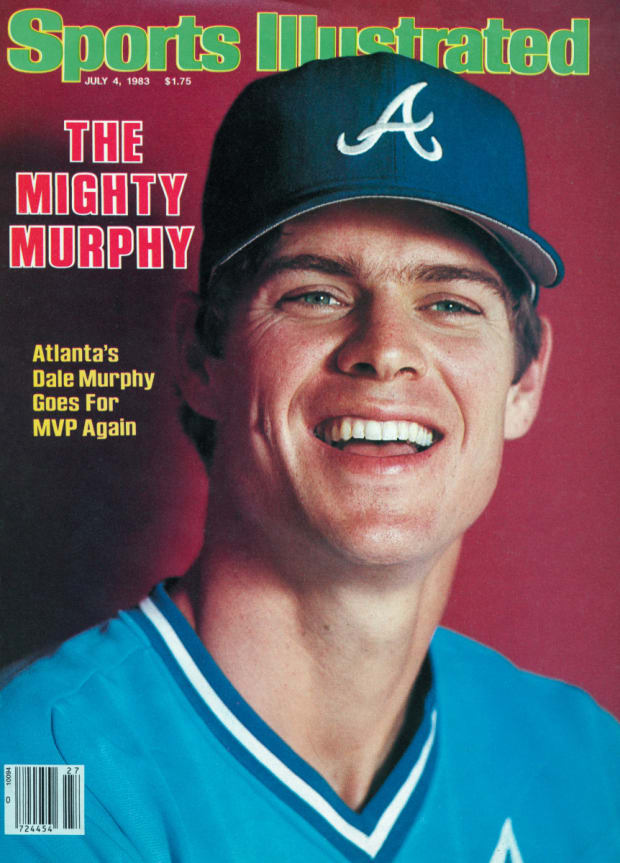
Andy Hayt/Sports Illustrated
Like Emma, when it comes to the Hall of Fame, I am more understanding toward the Hall of Fame cases of players who used steroids before baseball started testing for PEDs; although these players cheated, the league did nothing in those days to stop them from juicing. Only when the game’s reputation suffered because of widespread drug use (leading to a federal investigation) did the league decide to come down hard on steroids. Players who failed a drug test, such as Rafael Palmeiro, should never be elected, but I’m open to including guys like Barry Bonds and Roger Clemens, because their probable PED use came before testing.
However, I would vote for only Bonds, Clemens and other pretesting steroid guys if including them wouldn’t come at the expense of other HOF-worthy players—who likely didn’t cheat. That’s why I wouldn’t vote for them if I were on the Contemporary Baseball Era Committee.
My first spot goes to Fred McGriff, who was one of the best and most consistent hitters in baseball for nearly two decades.
The next three to consider, Albert Belle, Don Mattingly and Dale Murphy, each was on a Hall of Fame track before injuries plummeted production prematurely. Belle, who played only 10 full seasons and parts of two more before a knee injury ended his career, is certainly a Hall of Fame hitter with a Hall of Fame–worthy peak, but the lack of longevity hurts his case. Some of the names ahead of him in WAR and JAWS (the average of a player’s WAR and WAR7, which is the WAR for his best seven years) are Brett Gardner, Augie Galan and Brian Downing. We wouldn’t think twice about not voting for them, though Belle was a better player.
Mattingly ranks in a similar position among first basemen (45th with 42.4 WAR and tied for 39th with 39.1 JAWS) as Belle does with left fielders, but I’d give the nod to Mattingly over Belle. Mattingly was a more complete player, winning an MVP award (in 1985), a batting title (’84) and nine Gold Gloves. Also working in Mattlingly’s favor is the election of Gil Hodges via last year’s Golden Days Era Committee; their résumés are similar.
Mattingly: .307/.358/.471, 127 OPS+, 42.4 WAR, 35.8 WAR7, 39.1 JAWS
Hodges: .273/.359/.487, 120 OPS+, 43.9 WAR, 33.7 WAR7, 38.8 JAWS
The argument for Murphy boils down to this: He was by far the best center fielder of the 1980s. Among all position players in that decade, he ranked first in total bases (2,796), second in home runs (308) and RBIs (929), fourth in runs (938), and fifth in hits (1,553) and walks (784). He won four Silver Sluggers, five Gold Gloves and two MVP awards.
He is one of 32 players in baseball history to win multiple MVP awards, and 23 of them are already in the Hall of Fame. Of the remaining nine, four are not yet eligible for induction but almost certainly will get elected at some point. Three of the other five have ties to steroids (Bonds, Alex Rodriguez and Juan González). The final two are Murphy and Roger Maris, another short-peak, short-career guy.
The final player on the ballot, Curt Schilling, had a career worthy of the Hall of Fame. That said, I wouldn’t vote for him, because I would not want to give a platform to someone who has amplified presidential-election conspiracy theories and defended the Jan. 6 insurrectionists, called for the lynching of journalists and supported anti-transgender legislation, among many other abhorrent things.
Nick Selbe
Barry Bonds and Roger Clemens
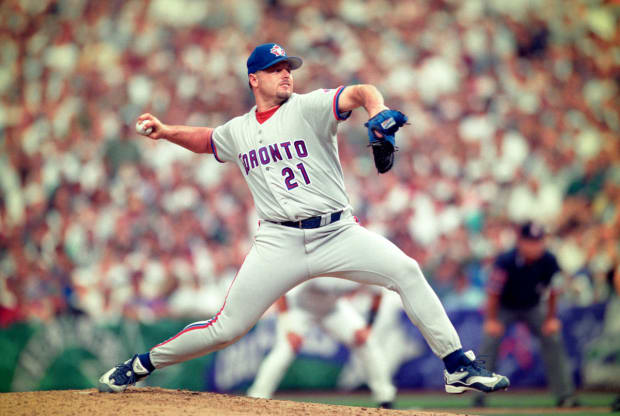
V.J. Lovero/USA TODAY NETWORK
For some, Bonds and Clemens represent an era of the most widespread cheating the game has ever known. To me, they represent a new stratosphere of individual baseball greatness. Bonds and Clemens have long been linked to steroids—though neither was ever suspended for using PEDs, as they played the bulk of their careers during a time before the league tested for such infractions. They are products of their era. Keeping two of the most accomplished players in baseball history out of the Hall of Fame won’t remove the dark cloud that, for many, hangs over the late 1990s and early 2000s. Instead, it’s an attempt at omitting two towering figures from an institution meant to honor and catalog the history of the sport itself.







